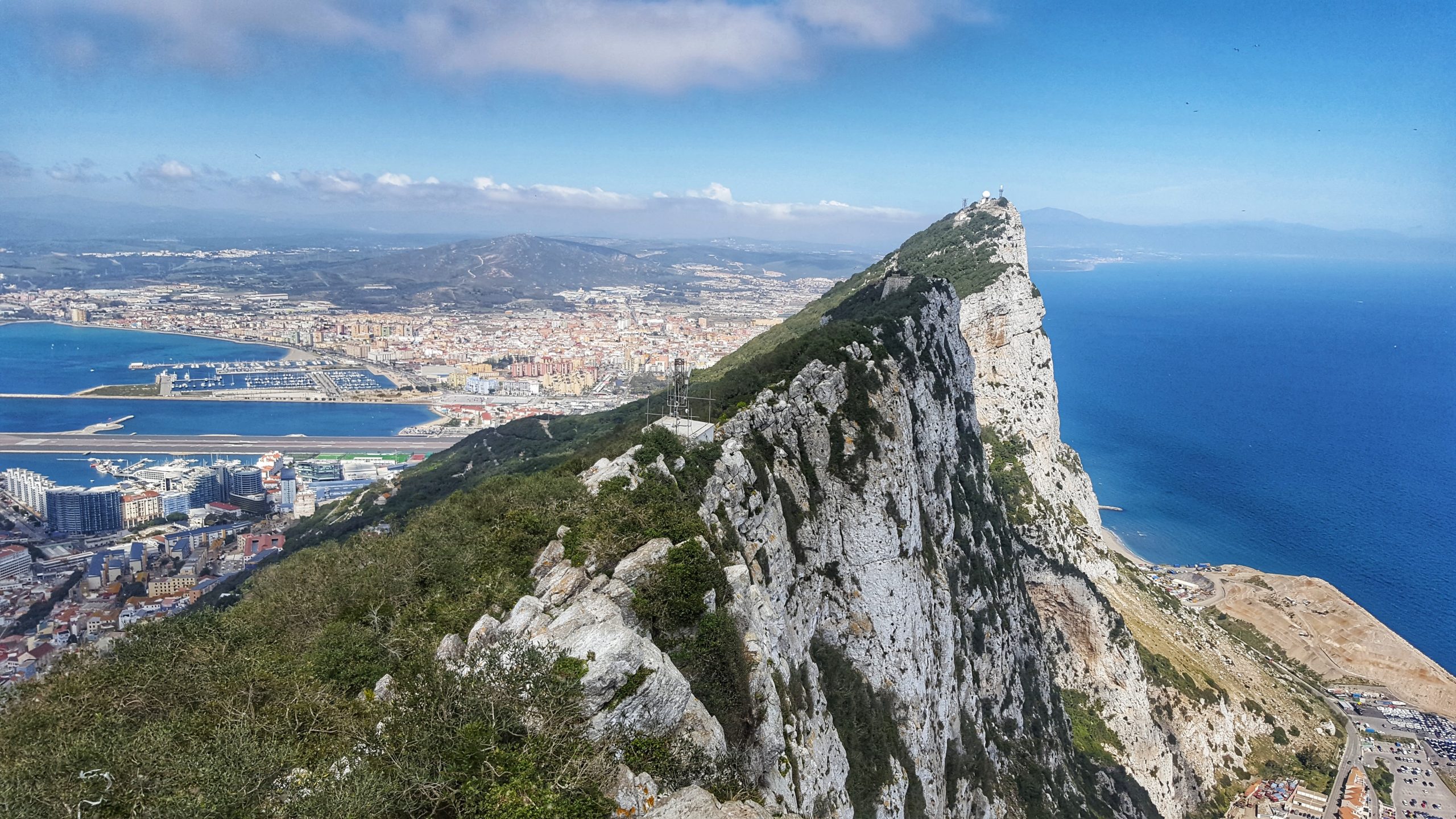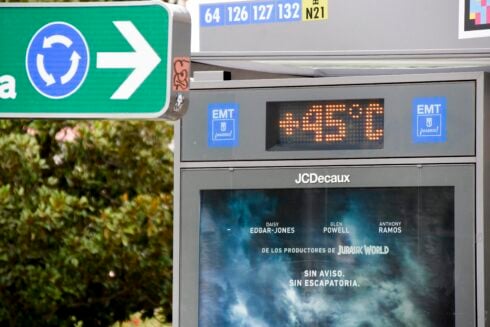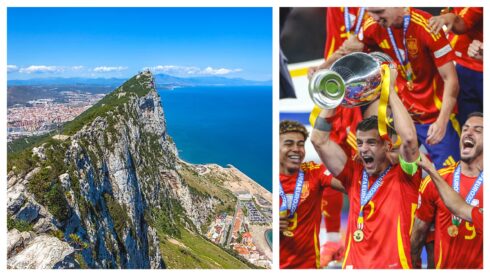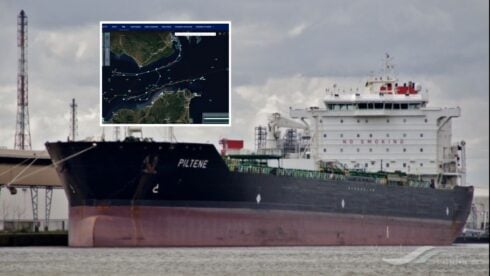AFTER successfully defeating England 2-1 on Sunday to secure a record-breaking fourth European Championship crown, the Spanish men’s national football team took to the streets of Madrid to celebrate their achievement.
Alvaro Morata, the side’s captain, and their Manchester City midfielder Rodri led the team in a chorus of ‘Gibraltar es Español’ (‘Gibraltar is Spanish’), much to the delight of the thousands of adoring fans.

But that chant has quickly provoked a diplomatic crisis, with Gibraltar’s Chief Minister Fabian Picardo among a number of leading figures to denounce the song as ‘rancid’ and an ‘old trope from the days of General Franco’.
Despite being positioned on a rocky outcrop on the southern tip of the Iberian peninsular, the 2.6 square miles of Gibraltarian territory and its 30,000 residents are British – and have been for over 300 years.
The Rock is so British that it uses the Pound Sterling as its currency, has pubs which serve roast dinners and fish and chips, uses red post boxes and is home to a Morrison’s, Matalan and Marks & Spencer.
But why is this the case?

The reason behind this peculiar corner of Britishness located just 7.7 nautical miles from the African coast is a long story that extends back over three centuries.
Gibraltar is one of 14 British Overseas Territories, and with no capital gains tax, wealth tax, sales tax or VAT, has become a lucrative haven where the GDP per capita is £85,614 per person, the second largest amount in the world.
At the start of the 18th century, Spain and Gibraltar were ruled by Charles II, known as ‘the Bewitched’ thanks to an array of severe physical and mental difficulties.
He died in 1700 with no heir, provoking a power vacuum which Europe’s great powers sought to fill.

War soon broke out and, in August 1704, British soldiers fighting with their Dutch allies captured the Rock, a militarily significant point thanks to its altitude and position at the Strait of Gibraltar’s narrowest point.
The war crawled on until 1713 when Britain and Spain signed the Treaty of Utrecht to resolve the conflict.
Article X of the Treaty of Utrecht agreed that Gibraltar would be British in perpetuity – the document, signed by both parties, stated formally that ‘the town, castle and fortifications were to be held and enjoyed forever without any exception or impediment’.
It is under this decree that Gibraltar has been deemed British since, with the terms of the treaty reaffirmed by the Treaty of Paris in 1763, which ended the Seven Years’ War between Britain and France, and the Treaty of Versailles in 1783, which ended the American Revolutionary War in which the British and Spanish both held interests.
Ever since then, Spain has held a territorial claim over Gibraltar, despite signing the binding decree which affirmed the Rock’s status as British forever.
They even launched an unsuccessful siege which lasted some four years until 1783.

Fascist leader General Franco, like current far-right politicians, believed that Gibraltar was Spanish, and shut the border with the Rock entirely, with the frontier only opened when Spain joined the EU in 1985.
In 1967, a referendum was held to determine whether the electorate of Gibraltar wished to stay as part of the UK or come under the rule of Spain.
Of the 12,233 people who cast their vote – over 96% of registered voters – just 44 people said they wished to become Spaniards.
The embarrassing defeat for those believing Gibraltar should be Spanish was repeated in 2002, where 99% of voters rejected shared sovereignty.
So as much as many Spaniards may wish to take Gibraltar, they would have to do so against the overwhelming tide of history and popular opinion.

Many are also keen to forget that Spain owns Ceuta and Melilla, two enclaves on the north African coast with strategic significance which were handed to Spain as part of the Treaty of Lisbon in 1668 in strikingly similar fashion to the circumstances in which the British took control of Gibraltar.
If Gibraltar is Spanish, as the national football team chant, then shouldn’t Ceuta and Melilla be handed back to Morocco too?
Click here to read more Spain News from The Olive Press.








